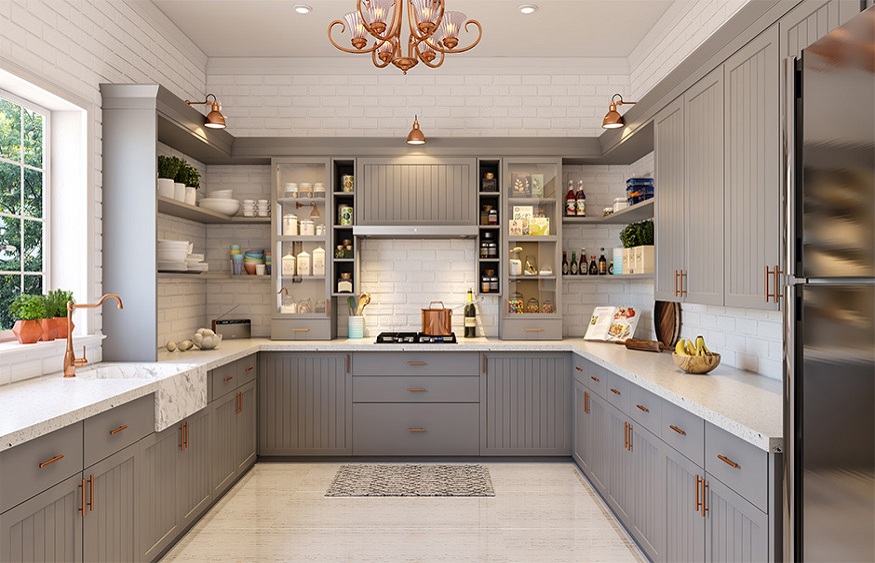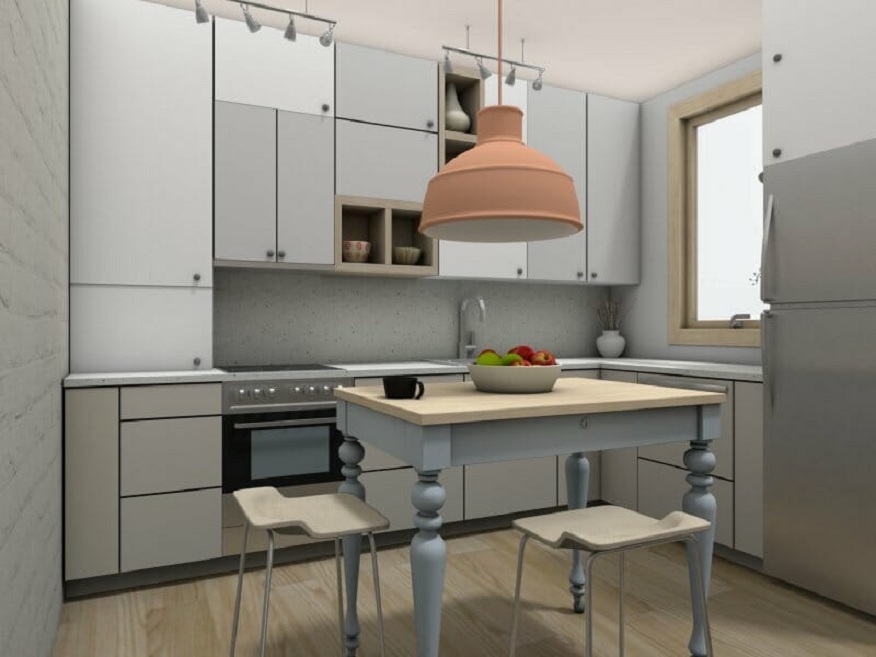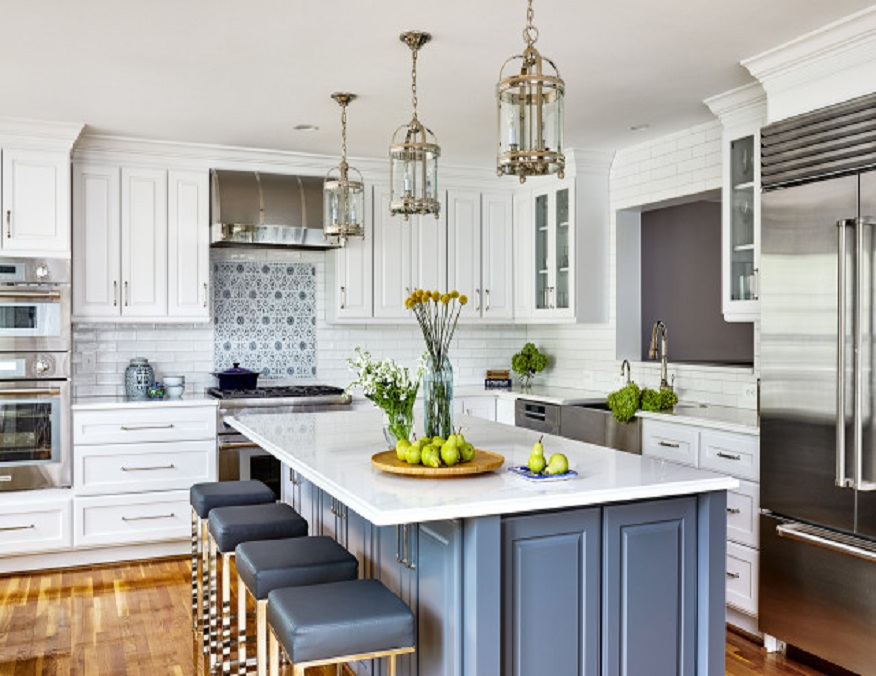As the world becomes more conscious of the need to protect the environment, people are increasingly seeking sustainable and eco-friendly options in all aspects of their lives. One area where this trend is particularly evident is in kitchen remodeling. Homeowners are now opting for eco-friendly materials and designs to reduce their carbon footprint and create a healthier living space. In this blog post, we will explore the latest trends in sustainable materials for eco-friendly kitchen remodeling and the benefits they offer.
Benefits of Sustainable Materials
1. Environmental Impact
Choosing sustainable materials for your kitchen remodeling project has a positive impact on the environment. These materials are typically made from renewable resources or recycled materials, reducing the demand for virgin resources and minimizing waste. By opting for materials that are responsibly sourced and manufactured, you can help minimize deforestation, pollution, and carbon emissions, contributing to a healthier planet.
2. Health Benefits
Sustainable materials are not just beneficial for the environment; they also promote better indoor air quality and overall health. Many conventional building materials contain harmful chemicals, such as volatile organic compounds (VOCs), which can be released into the air and cause respiratory issues and other health problems. Sustainable materials, on the other hand, are often low or VOC-free, making them a healthier choice for your kitchen and your family.
3. Cost Savings
Contrary to popular belief, opting for sustainable materials doesn’t have to break the bank. While some eco-friendly options may have a higher upfront cost, they often offer long-term cost savings. For example, energy-efficient appliances can significantly reduce your electricity bills, while durable materials require less frequent replacement, saving you money in the long run. Additionally, some sustainable materials, such as reclaimed wood, can add value to your home, making them a wise investment.
4. Durability and Longevity
One of the key advantages of sustainable materials is their durability and longevity. Many of these materials are carefully selected or engineered to withstand daily wear and tear, making them a practical choice for high-traffic areas like kitchens. By choosing durable materials, you can reduce the need for frequent repairs or replacements, saving both money and resources in the long term.
5. Aesthetics and Design Options
Gone are the days when sustainable materials were limited to dull and unattractive options. Today, eco-friendly materials come in a wide range of styles, colors, and textures, allowing you to create a beautiful and unique kitchen design. Whether you prefer the natural warmth of reclaimed wood or the sleekness of recycled glass, there are plenty of options to suit your personal style and complement your overall home aesthetic.
Bamboo
Bamboo is a popular choice for eco-friendly kitchen remodeling due to its remarkable sustainability. It is one of the fastest-growing plants on earth, making it a highly renewable resource. Bamboo is often used for flooring, cabinets, and countertops, offering a beautiful and natural look to your kitchen. Additionally, bamboo is extremely durable and resistant to moisture, making it an excellent choice for high-traffic areas that are prone to spills and stains.
Recycled Glass
Recycled glass is another sustainable material that has gained popularity in kitchen design. It is made from post-consumer or post-industrial glass waste that would otherwise end up in landfills. This glass is crushed, melted, and transformed into beautiful countertops, backsplashes, and decorative elements. Recycled glass offers a unique and colorful option for your kitchen while reducing the demand for new glass production and conserving valuable resources.
Reclaimed Wood
Reclaimed wood has a rustic and timeless appeal that adds warmth and character to any kitchen. This material is salvaged from old structures such as barns, factories, and warehouses, giving it a rich history and unique patina. By using reclaimed wood for your kitchen cabinets, flooring, or countertops, you not only prevent valuable wood from going to waste but also reduce the need for new timber extraction, protecting forests and promoting sustainable forestry practices.
Recycled Metal
Recycled metal is an excellent choice for adding an industrial and modern touch to your eco-friendly kitchen. Materials like aluminum and stainless steel can be recycled multiple times without losing their strength or quality. Recycled metal can be used for appliances, countertops, and accents, giving your kitchen a sleek and sophisticated look. By opting for recycled metal, you reduce the energy and resource-intensive process of mining and refining new metals.
Sustainable Countertop Materials
When it comes to sustainable countertop options, there are several choices to consider. In addition to bamboo and recycled glass, other eco-friendly materials include composite countertops made from recycled paper or agricultural waste, and butcher block countertops made from sustainably harvested wood. Each material offers its unique benefits in terms of durability, aesthetics, and environmental impact, allowing you to choose the best option for your kitchen remodeling project.
Low VOC Paints
Painting your kitchen walls with low VOC (volatile organic compound) paints is an easy and effective way to improve indoor air quality. Conventional paints release harmful chemicals into the air, contributing to indoor pollution and potential health problems. Low VOC paints, on the other hand, have reduced levels of these harmful chemicals, making them a safer and more eco-friendly option. These paints are available in a wide range of colors, allowing you to achieve the desired look without compromising on environmental responsibility.
Energy-Efficient Appliances
Investing in energy-efficient appliances is a smart choice for both the environment and your pocket. Energy-efficient refrigerators, dishwashers, stoves, and ovens consume less energy, reducing your carbon footprint and saving you money on utility bills. Look for appliances with the ENERGY STAR label, which indicates that they meet strict energy efficiency standards. Additionally, consider appliances with innovative features like smart technology that allows you to optimize energy usage and reduce waste.
Green Flooring Options
Choosing environmentally friendly flooring options can make a significant difference in the sustainability of your kitchen. Materials like cork, bamboo, and linoleum are renewable resources that offer durability and natural beauty. These flooring options are harvested responsibly or made from recycled materials, minimizing their environmental impact. Additionally, their natural properties, such as insulation and shock absorption, make them comfortable to walk on and reduce noise levels in your kitchen.
Water-Efficient Fixtures
Conserving water is an essential aspect of eco-friendly kitchen design. Installing water-efficient fixtures, such as low-flow faucets and aerators, can significantly reduce water usage without compromising functionality. These fixtures ensure that water is used efficiently, saving both money and valuable resources. Additionally, consider installing a water-efficient dishwasher that uses less water per cycle and has energy-saving features such as soil sensors and eco-friendly wash cycles.
Eco-Friendly Kitchen Design Tips
1. Efficient Use of Space
Maximize the functionality of your kitchen while minimizing its environmental impact by efficiently using the available space. Consider incorporating storage solutions that optimize space utilization and reduce clutter. Efficiently organizing your kitchen not only improves workflow but also reduces the need for additional storage units and excessive material usage.
2. Natural Lighting and Ventilation
Utilize natural lighting and ventilation in your kitchen design to reduce reliance on artificial lighting and mechanical ventilation systems. Strategically place windows, skylights, or light tubes to allow natural light to enter the space. This not only saves energy but also creates a bright and inviting atmosphere in your kitchen. Additionally, ensure proper ventilation to remove cooking odors and improve air quality, reducing the need for energy-consuming exhaust fans.
3. Energy-Efficient Lighting
Choose energy-efficient lighting options for your kitchen to reduce electricity consumption. LED lights are an excellent choice as they use significantly less energy than traditional incandescent bulbs and have a longer lifespan. Install task lighting in areas where focused lighting is required and use dimmer switches to adjust lighting levels based on the specific task or ambiance desired.
4. Water Conservation Strategies
Implement water conservation strategies in your kitchen design to minimize water waste. In addition to installing water-efficient fixtures, consider incorporating other water-saving features. For example, you can install a water filtration system to provide clean drinking water and discourage the use of single-use plastic water bottles. You can also incorporate a composting system to reduce food waste and use the compost for nourishing your garden plants.
5. Smart Appliance Integration
Embrace smart technology and integrate it into your eco-friendly kitchen design. Smart appliances allow you to optimize energy usage, reduce waste, and save money. For example, you can program your refrigerator to adjust its temperature based on your usage patterns, or use a smart thermostat to regulate energy consumption in your kitchen. Additionally, consider investing in smart plugs or power strips to monitor and control the energy usage of your appliances.
Publisher Details:
Elite Living Construction
28062 Forbes Rd D, Laguna Niguel, CA 92677, United States
(866) 451-1995
elitelivingconstruction.com
info@elitelivingconstruction.com
Embrace sustainability in your kitchen remodel with eco-friendly materials like bamboo, recycled glass, and reclaimed wood. Efficient space use, natural lighting, and smart technology contribute to an eco-conscious kitchen design. Trust Eilte Living Costruction as your reliable kitchen remodeling compay in Santa Ana, CA.
Read their new blog on Top Kitchen Remodeling Trends You Should Consider




